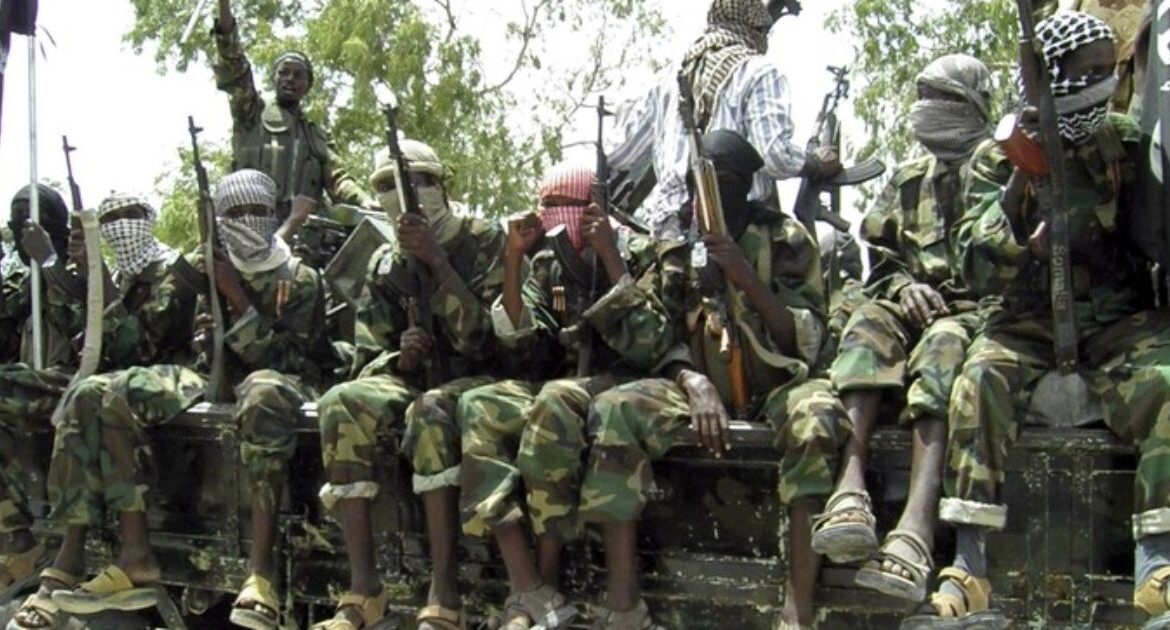
Who Is Boko Haram, the Jihadist Group Responsible for Killing and Abducting Christians in Nigeria


So far, no group has claimed responsibility for the November 21 abduction of 303 schoolchildren and 12 teachers from St. Mary’s School, a Catholic school in Niger State, Nigeria. Historically, the perpetrators of mass killings and kidnappings in Nigeria have been jihadist groups, primarily Boko Haram and Islamic State affiliates.
The following day, Boko Haram fighters attacked the village of Warabe in Borno State, killing eight people, including seven members of the Civilian Joint Task Force who were gathering firewood when they were ambushed. The attackers also abducted three local hunters and stole their weapons.
Boko Haram was founded by Mohammed Yusuf in 2002 in Maiduguri, northeastern Nigeria. The group’s growing radicalization triggered a suppression campaign by the Nigerian military, culminating in Yusuf’s killing in July 2009. After his death, the group unexpectedly resurged following a mass prison break in September 2010 in Bauchi, launching increasingly sophisticated attacks.
Abubakar Shekau led Boko Haram from 2009 until his death in 2021, though the organization splintered after Yusuf’s death in 2009 and again in 2015. Despite Shekau’s death, the movement revived under a new leader, Bakura Doro.
In 2015, Shekau pledged allegiance to the Islamic State of Iraq and the Levant, and in 2016 the organization split again, creating the hostile offshoot known as the Islamic State’s West Africa Province (ISWAP). The group’s official name has always been Group of the People of Sunnah for Dawa and Jihad (Jama’atu Ahli is-Sunnah lid-Da’wati wal-Jihād). The name “Boko Haram” comes from Hausa and means “Western education is forbidden.”
Boko Haram is based in northeastern Nigeria and is also active in Chad, Niger, northern Cameroon, and Mali. Both Boko Haram and ISWAP have escalated their campaigns in 2025, launching near-daily attacks on civilians and security forces, especially in their stronghold regions of Yobe and Borno states. The group seeks to reestablish an Islamic caliphate and bring all peoples under its rule, rejecting modern nation-states and any patriotic loyalty to them.
Its ideology centers on strict adherence to Wahhabism, an extremely rigid form of Sunni Islam that labels many other Islamic traditions as idolatrous. Boko Haram denounces Sufi and Shiite Muslims as infidels and targets mainstream Sunni Muslims who refuse to support its jihad. The group rejects the Westernization of Nigerian society, which it blames for corruption, and demands the creation of an Islamic state in Nigeria.
Their terrorist activities include suicide bombings, mass abductions, torture, rape, forced marriages, the recruitment of child soldiers, and attacks on government infrastructure, religious leaders, traditional leaders, and civilians. Schools have been frequent targets, often because they are Christian or promote Western-style education. One of the most brutal incidents occurred in February 2014, when Boko Haram militants attacked the Federal Government College of Buni Yadi, locking the doors of the boys’ dormitory and setting it on fire, killing fifty-nine students.
Those who tried to escape were shot or stabbed to death. In April 2014, the group kidnapped 276 schoolgirls from Chibok in Borno State, a mass abduction that drew global attention to Boko Haram’s campaign of terror.
Boko Haram killed more than 6,600 people in 2014, and the conflict has been marked by repeated suicide bombings, often carried out by women who conceal explosives beneath their hijabs. In 2017 alone, there were more than 127 suicide bombings and attempted bombings. At least 2,266 people were killed by bandits or insurgents during the first half of 2025, surpassing the total number of such deaths in all of 2024.
On June 21, 2025, a woman detonated an improvised explosive device at a fish market in Konduga town, killing at least twelve people. On September 5, 2025, sixty-three people were killed, including seven soldiers, in Boko Haram attacks in Darul Jamal, Borno State. In October 2025, Boko Haram seized the Nigerian border town of Kirawa in Borno State, burning the district head’s palace, a military barracks, and dozens of homes, forcing more than five thousand people to flee into neighboring Cameroon.
Between 2011 and 2023, Boko Haram caused more than 38,000 deaths in Borno State alone. Since launching its insurgency in 2009, the group has displaced millions and created a humanitarian emergency, with more than 7.8 million people—about 80 percent of them women and children, requiring urgent assistance.
Of the 2.3 million people displaced since May 2013, at least 250,000 fled Nigeria for Cameroon, Chad, or Niger. The group has repeatedly targeted children, with more than 1,600 abducted since 2014. At least 1,500 students have been seized in school raids since the Chibok kidnapping, and in 2024 alone at least 580 civilians, primarily women and girls, were kidnapped across several states.
Some analysts have argued that Boko Haram is only a domestic terrorist group, but U.S. and Nigerian intelligence have shown this is false. While Boko Haram and Ansaru do attack Nigerian government and civilian targets, their actions demonstrate participation in the global jihad movement. The 2011 bombing of the United Nations office in Abuja, along with repeated statements from Boko Haram spokesmen, reveal clear international intent. Under U.S. law, a group is designated a foreign terrorist organization if it is foreign, engages in terrorism, and threatens U.S. nationals or national security.
Boko Haram and Ansaru meet all three criteria, and officials welcomed the announcement recognizing them as such. Consequently, Boko Haram was designated a Foreign Terrorist Organization by the U.S. Department of State on November 14, 2013. However, the designation has not stopped them, and their killing and kidnapping of innocent people, particularly Christians, has continued.
The post Who Is Boko Haram, the Jihadist Group Responsible for Killing and Abducting Christians in Nigeria appeared first on The Gateway Pundit.
